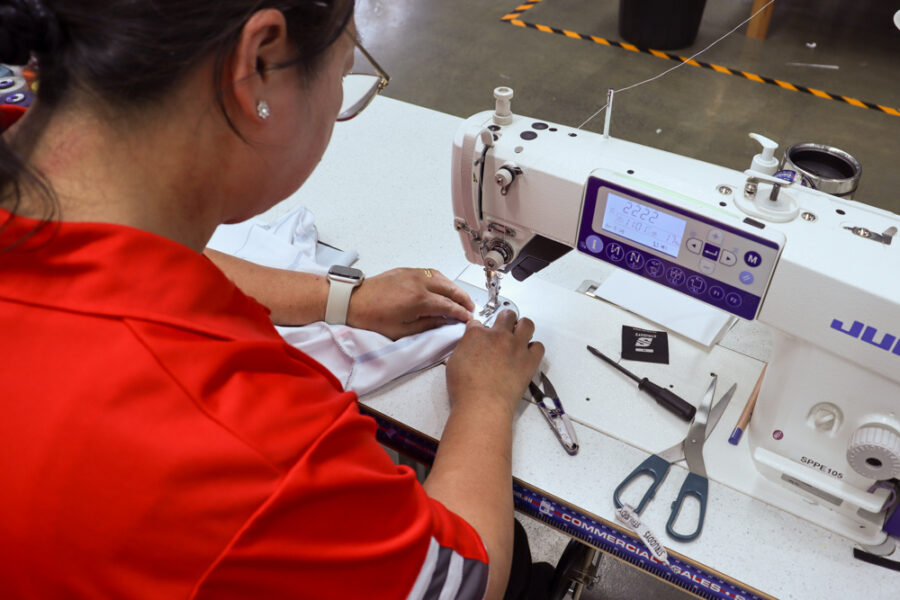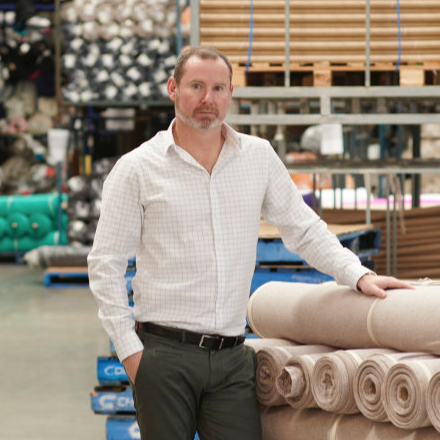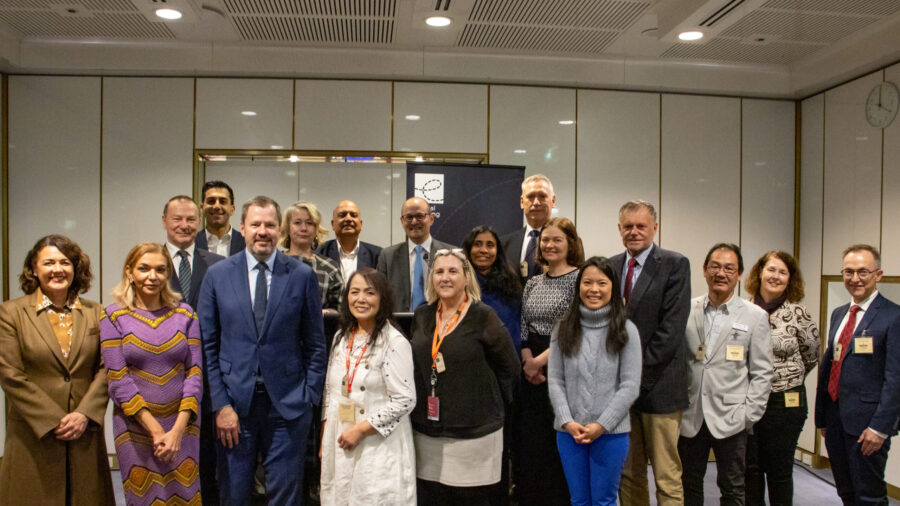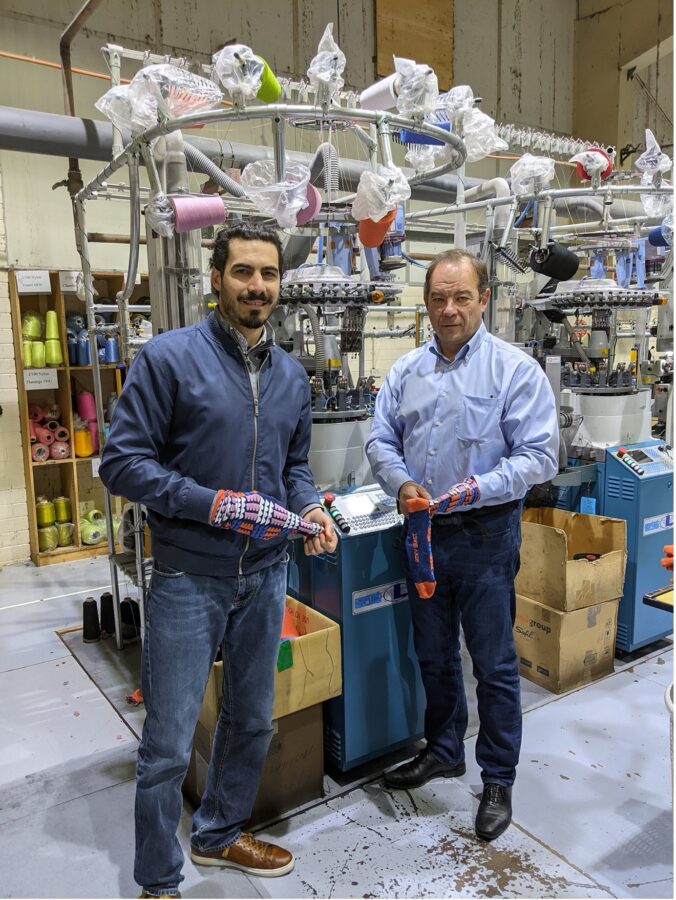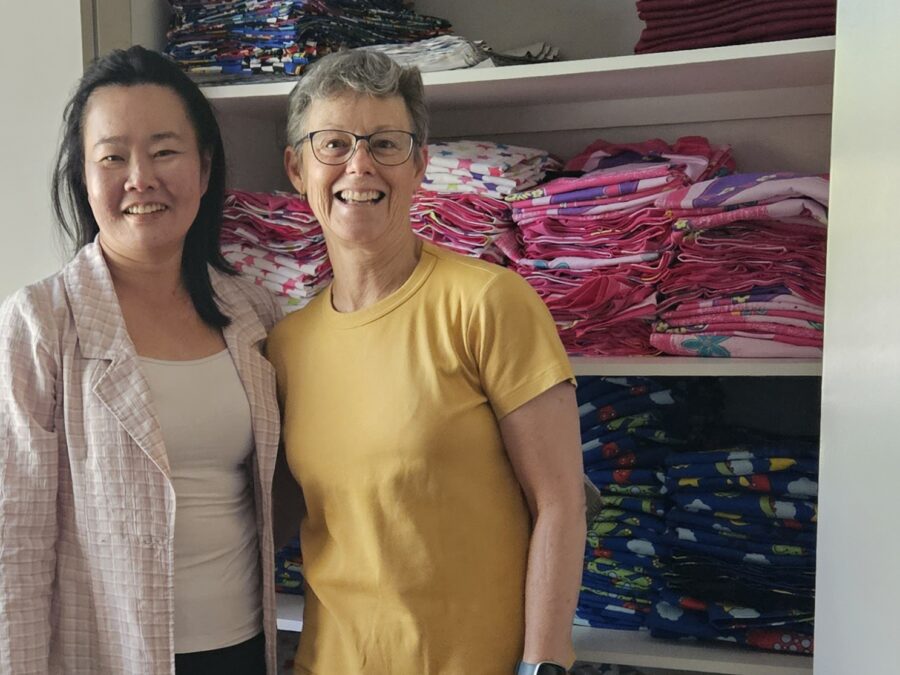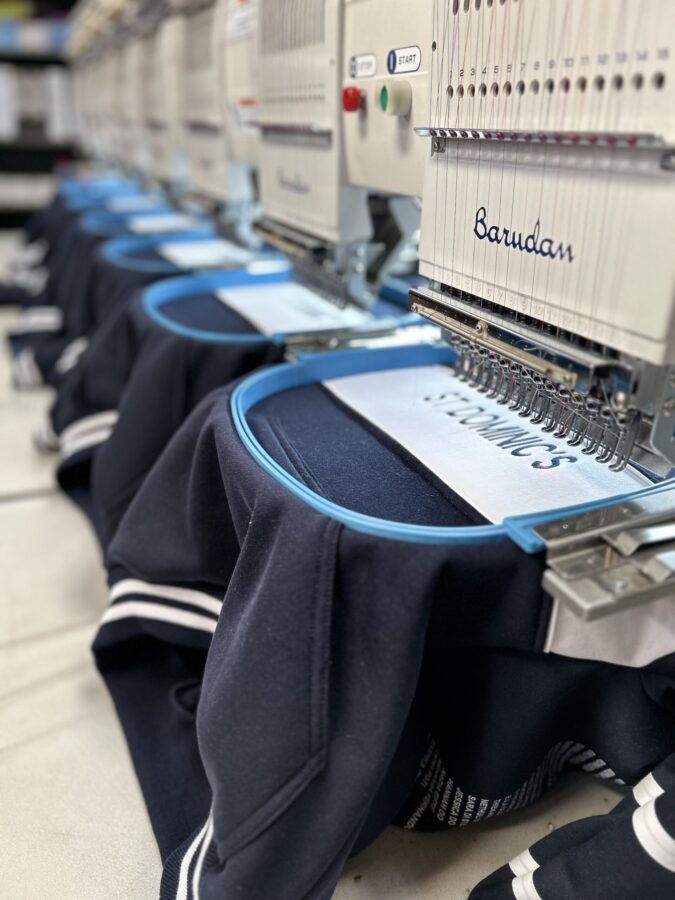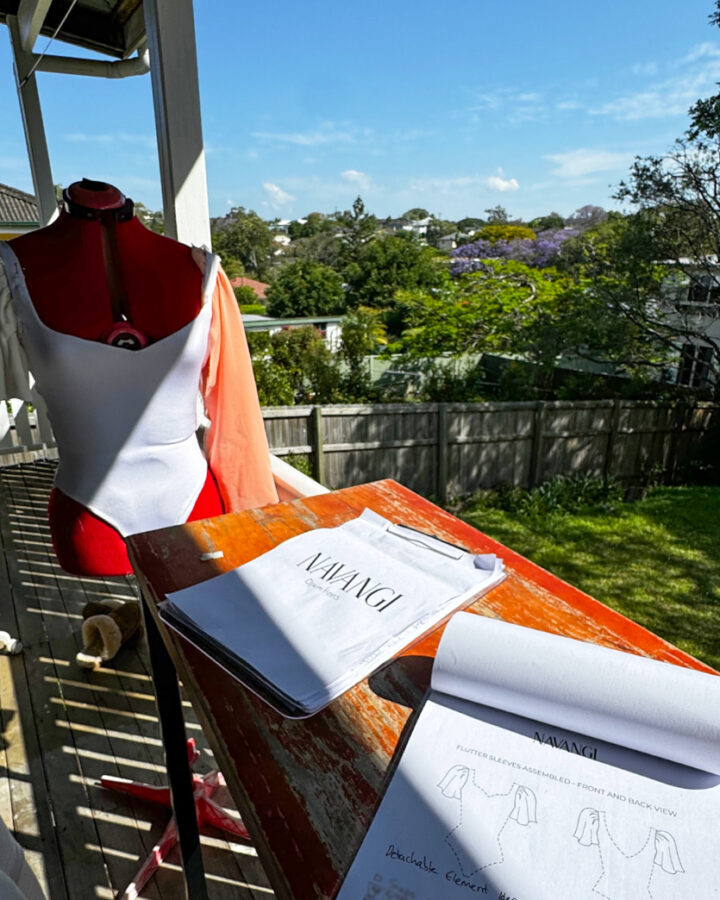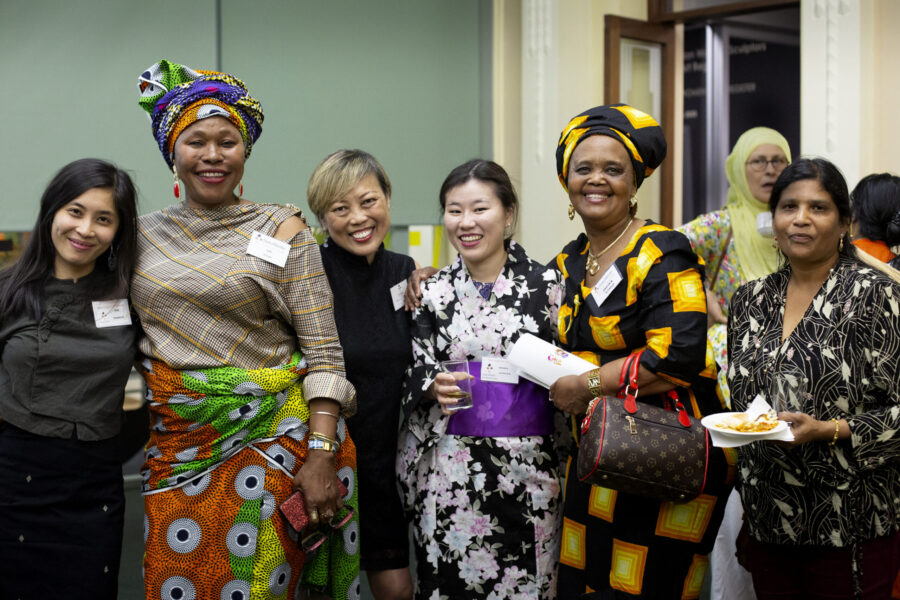A Q&A with Candace from Apawrel
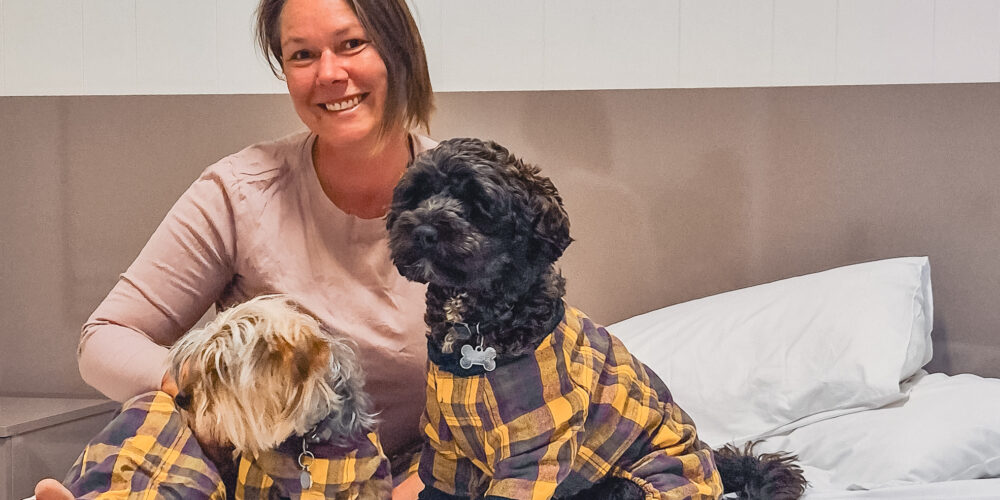
Candace from Apawrel shares insights into balancing her full-time role with building a sustainable dog clothing business, turning textile waste into tail-wagging treasures through ethical manufacturing.
Hi Candace! Tell us a bit about yourself.
I grew up on Yorta Yorta Country in regional Victoria and now live and work in Naarm (Melbourne) on Wurundjeri Country. I’m a proud Girl Guide leader, a dog mum to two cheeky characters (Storm the Yorkie and Dexter the Poodle-cross), and someone with AuDHD who brings a neuro-spicy lens to everything I do.
I’m passionate about reducing fashion waste, creating accessible products, and being a role model for the next generation. Whether it’s mentoring young people or designing custom dog wear that doesn’t cost the earth, I try to keep things grounded, thoughtful and paw-sitive.
That sounds like such a purposeful approach! Tell us more about Apawrel – how does this passion for reducing waste translate into what you actually create?
Apawrel is a slow fashion label for stylish hounds and their humans. We create sustainable, made-to-order and custom-fit dog clothing and accessories using repurposed textiles. Think old jumpers, broken gear, and “scraps” destined for landfill, turned into tail-wagging treasures. Each piece has a story, and everything is made ethically here in Naarm.
We work closely with our community, rescue organisations, and op shop networks to give unwanted items new life. At the heart of it all is the bond between pets and their people, what we call the “kahu” connection, inspired by the Hawaiian term for guardian.
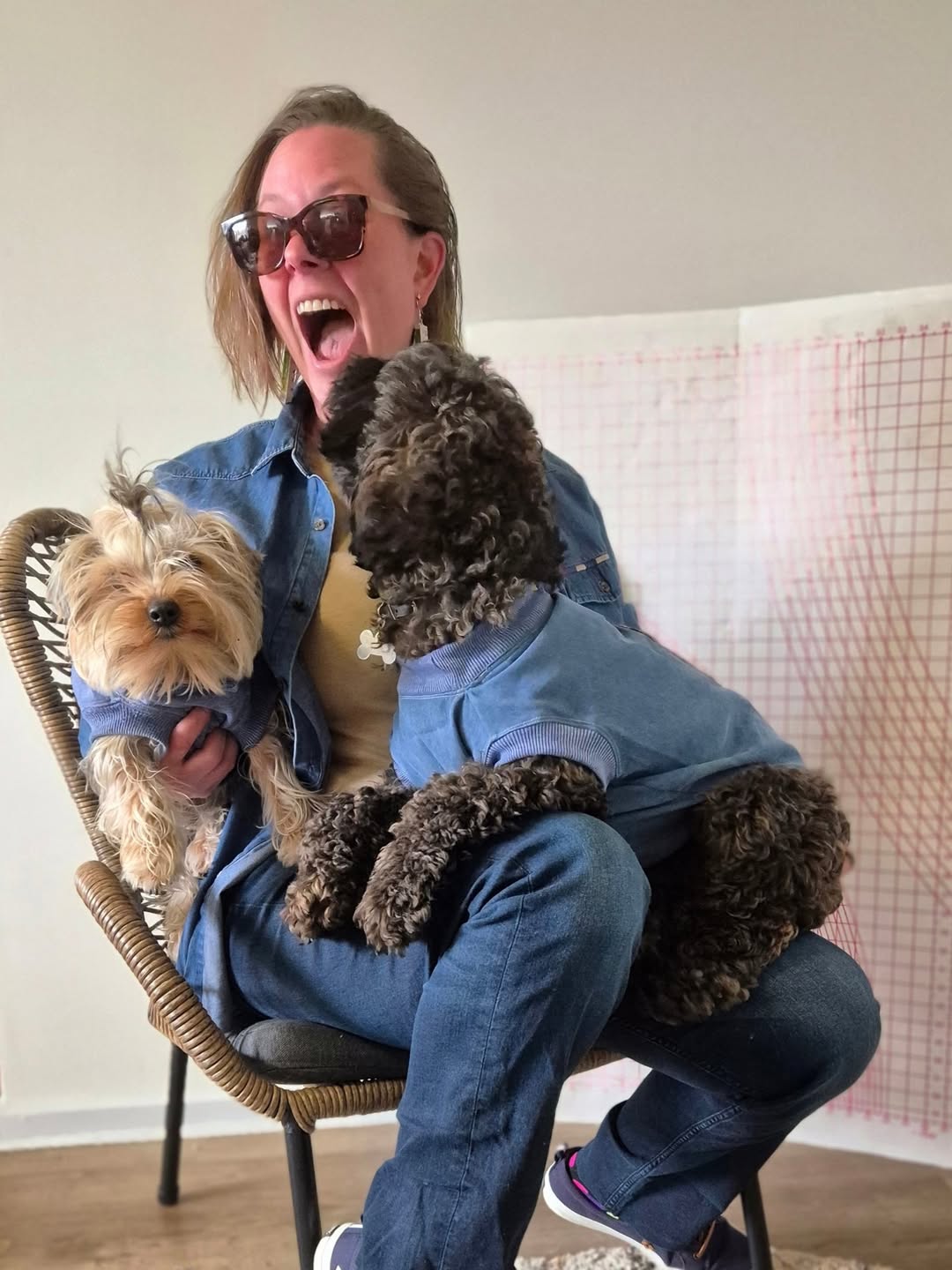
With you working full-time and having all these community connections, what does a typical workday actually look like for you?
Like many start-ups, Apawrel is currently my after-hours and weekends endeavour. I work full-time in strategy and quality management, so my days are spent supporting systems and teams—and my evenings are where the sewing, storytelling, and sustainability magic happens.
Most nights you’ll find me at my home studio (aka the dogs’ lounge room) drafting patterns, repurposing donated materials, or packing orders—usually with Storm supervising closely and Dexter curled up nearby. On weekends, I’m testing new designs, working on content with accessibility in mind, and every other month, running our market stall where we connect directly with our community.
It’s a full schedule, but I love the balance it brings, combining structure with creativity, and strategy with paws-on making. Every task, no matter how small, brings us closer to our goal: reducing waste, supporting ethical production, and celebrating the connection between pets and their people.
It sounds like you’ve created quite a structured approach to balancing everything. Given that you’re doing all this sewing and making at home, why is it important to your business to manufacture locally and ethically?
For me, it’s about walking the talk, on four legs or two. We can’t talk about sustainability without talking about ethics. Manufacturing locally means I can maintain full visibility of how things are made, who is making them, and what impact that’s having on people, animals, and the planet.
It also means supporting community, whether that’s sourcing from local op shops, collaborating with other micro makers, or using production as a platform to show what accessible, inclusive business can look like. As someone with AuDHD, I know firsthand how important it is to build systems that work for different minds and bodies.
It felt like the natural next step to undertake accreditation with Ethical Clothing Australia. I wanted a way to back up our ethos with action and to ensure that our processes met an external standard for ethical practice.
- Candace Maunder | Founder of Apawrel
Those values around accessibility and inclusion really come through. Starting a business with those principles while working full-time and having no formal fashion training must have presented some hurdles – what’s been your biggest challenge and how did you overcome it?
Starting with almost no budget and no formal fashion training was a challenge, but also a gift in disguise. I had to be resourceful from day one. That meant learning through doing, borrowing gear, and embracing perfectly imperfect materials.
Another big challenge has been balancing the many hats I wear: seamstress, designer, strategist, content creator, accessibility advocate, and occasional dog wrangler. Learning to pace myself, especially with an AuDHD brain, has been a journey. The solution? Systems, breaks, asking for help, and always circling back to why I started.
It sounds like you’ve learned so much through that process of trial and resourcefulness. What milestone or achievement are you particularly proud of?
Seeing our upcycled hoodies featured on a billboard as part of the Ethically Made in Australia Pop-Up was a real “pinch me” moment. As a small, after-hours operation still finding our feet, it was incredibly affirming to have our work recognised alongside other ethical makers doing amazing things.
I’m also proud of the positive response our hoodies have received, not just for their fit or quirkiness, but for the stories behind them. Each one is made from fabric rescued from landfill and tells a tale of second chances. It’s a reminder that small-scale, considered design can be part of the solution to fashion waste.
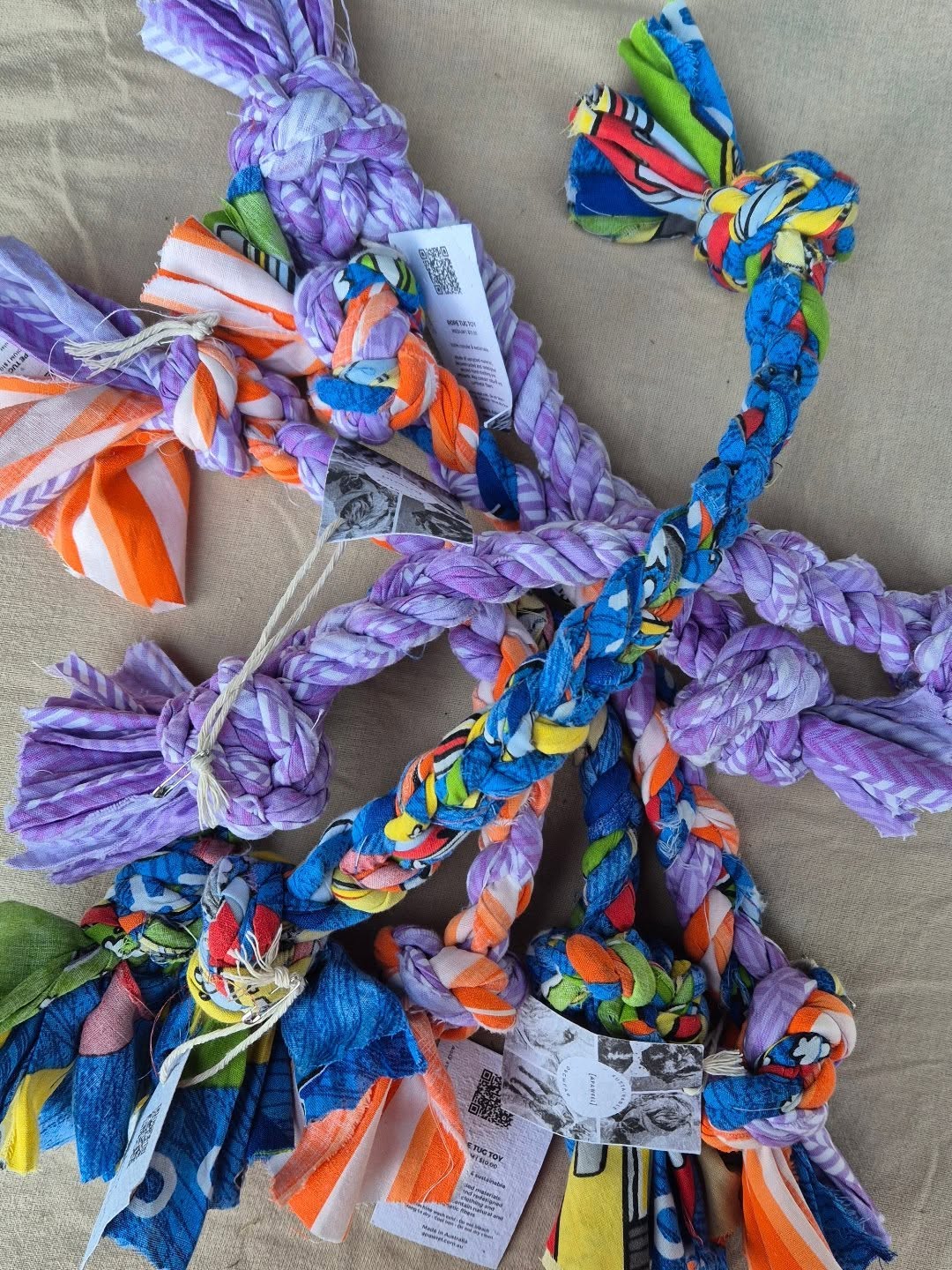
That billboard moment must have felt incredible – and what a journey from resourceful beginnings to being featured in our Pop-Up! What made you decide to take the step towards Ethical Clothing Australia accreditation?
It felt like the natural next step to undertake accreditation with Ethical Clothing Australia. I wanted a way to back up our ethos with action and to ensure that our processes met an external standard for ethical practice. For me it was about setting clear foundations for how we grow and demonstrating our values. I wanted Apawrel to be transparent about the way we work, especially when it comes to upholding human rights and ethical treatment across the supply chain, even as a one-person operation. As we scale, it’s important that our commitment to ethical production isn’t just something we say, it’s something we can show, measure, and be held accountable for. The Ethical Clothing Australia accreditation gives us that framework. It helps ensure that as we build, we do so with integrity, and in a way that values the people behind the process just as much as the pups wearing the product.
[Our Ethical Clothing Australia accreditation] helps ensure that as we build, we do so with integrity, and in a way that values the people behind the process just as much as the pups wearing the product.
- Candace Maunder | Founder of Apawrel
Is there anything else you would like to let people know about Apawrel?
Just a little reminder that every purchase is more than just a coat or toy, it’s a commitment to better choices. Whether you’re upcycling something at home or choosing local over fast fashion, it all makes a difference. Oh, and if you’ve got “waste” you think we could repurpose feel free to bark at us on our Instagram page.
Learn more about Apawrel here and see their brand listing in the our directory.
Related articles
Explore more insights, updates and stories from across Australia’s ethical and local manufacturing industry.

